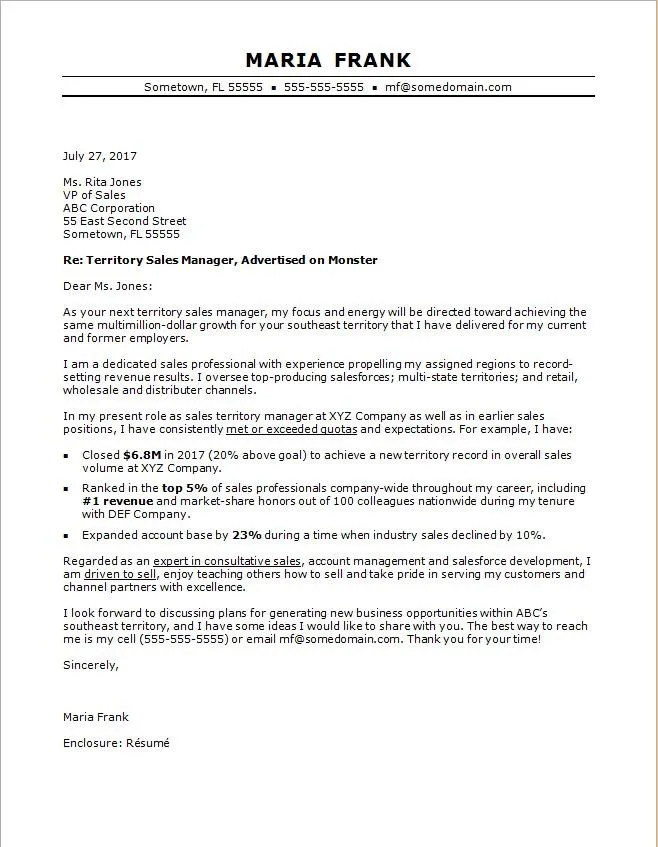Why a Standout Sales Cover Letter Matters
In the competitive world of sales, a well-crafted cover letter can be your key to unlocking new opportunities. It’s your chance to make a lasting first impression, demonstrating that you possess the skills, experience, and personality required to excel in a sales role. A generic or poorly written cover letter can easily get lost in the shuffle, but a standout cover letter has the power to grab the attention of hiring managers and set you apart from other candidates. Think of it as your personal sales pitch, designed to convince the reader that you are the perfect fit for the job. In a landscape where recruiters often skim applications, a compelling cover letter is essential to ensure your resume doesn’t end up in the ‘maybe’ pile. A strong cover letter is not merely a formality; it is a strategic tool that can significantly increase your chances of landing an interview and ultimately, securing the sales position you desire. This guide will walk you through the essential components of crafting a compelling cover letter that will make you stand out.
Grabbing Attention from the Start
The opening of your sales cover letter is critical; it’s your one chance to make a memorable first impression. Avoid generic greetings like ‘Dear Hiring Manager’ and instead, try to personalize it. If you know the name of the hiring manager, use it. If not, research the company and use a professional, yet engaging opening. Instead of rehashing your resume, start with a hook that demonstrates your understanding of the company’s needs and how you can meet them. This could be a specific achievement, a relevant skill, or a clear statement of your enthusiasm for the role and the company. For example, you might start with a statement about a successful sales campaign you led that directly relates to the job requirements or a sentence reflecting your excitement to contribute to the company’s objectives. Your introduction should clearly articulate your value proposition and why they should continue reading. Remember, the goal is to immediately grab their attention and make them want to learn more about you.
Highlighting Your Sales Achievements
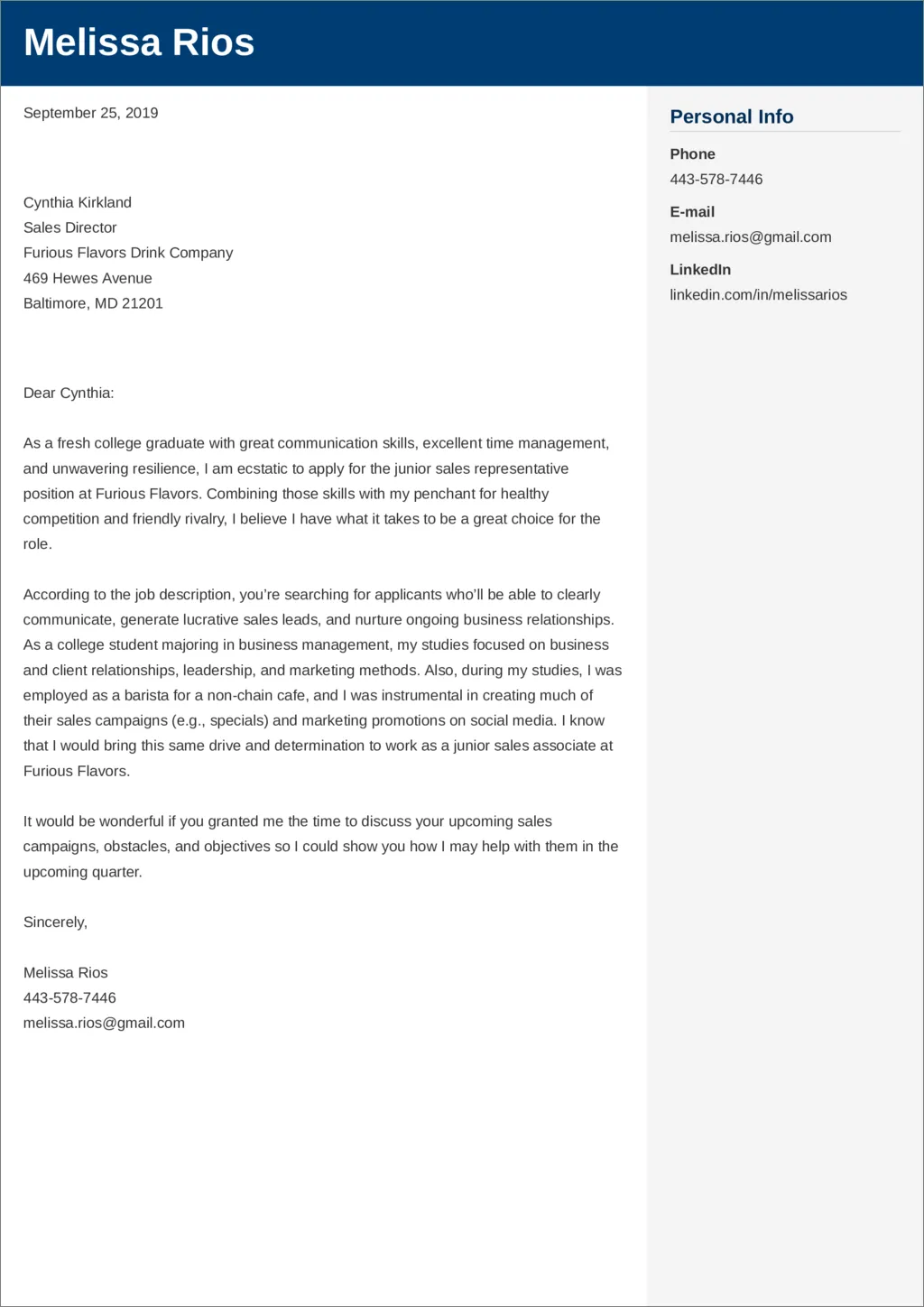
While your resume lists your sales experience, your cover letter should expand on your achievements and demonstrate their relevance to the target job. Don’t just list responsibilities; highlight your accomplishments. This means focusing on what you achieved in previous roles and how those achievements align with the expectations of the new position. Focus on quantifiable results, such as increased sales revenue, customer acquisition rates, or market share gains. Provide specific examples to illustrate your successes. For instance, instead of stating ‘Increased sales,’ quantify it by saying ‘Increased sales by 25% in Q2 2023 by implementing a new lead generation strategy.’ Use the STAR method (Situation, Task, Action, Result) to structure your examples, providing context, detailing your actions, and emphasizing the positive outcomes of your efforts. Showcasing your achievements demonstrates your capabilities and gives hiring managers concrete evidence of your ability to contribute to their organization’s success.
Quantifying Your Sales Success
Quantifying your sales success is essential for making your cover letter compelling. Numbers provide concrete evidence of your ability to drive results and highlight your value to potential employers. Use specific metrics like sales revenue generated, percentage increases in sales, customer acquisition rates, and the size of deals closed. For instance, instead of saying you ’exceeded sales targets,’ state that you ‘consistently exceeded sales targets by an average of 15% each quarter.’ Include the specific time frame for your achievements to provide context, such as ‘increased sales revenue by $100,000 in the last fiscal year.’ Use percentages and dollar amounts to illustrate your impact. Quantifying your accomplishments isn’t just about listing numbers; it’s about demonstrating the value you brought to your previous roles and the potential value you can bring to the new one. This level of detail provides hiring managers with a clear understanding of your capabilities and the potential return on investment they can expect by hiring you.
Showcasing Your Sales Skills
Your cover letter is the perfect place to highlight your sales skills and demonstrate how they align with the job requirements. Identify the key skills the employer is seeking and provide examples of how you’ve utilized those skills to achieve success in previous roles. Consider both hard skills, such as CRM proficiency and sales forecasting, and soft skills, like communication, negotiation, and relationship building. Make sure to tailor your skills to match the job description. For instance, if the job description emphasizes the need for closing deals, provide examples of your ability to close complex sales or manage the entire sales cycle. Similarly, if the role requires cold calling or lead generation, highlight your experience in those areas. By showcasing your relevant skills, you demonstrate that you have the practical capabilities needed to excel in the position and are well-prepared to meet the employer’s expectations. Don’t just list the skills; give brief anecdotes to illustrate how you’ve applied them.
Communication Skills
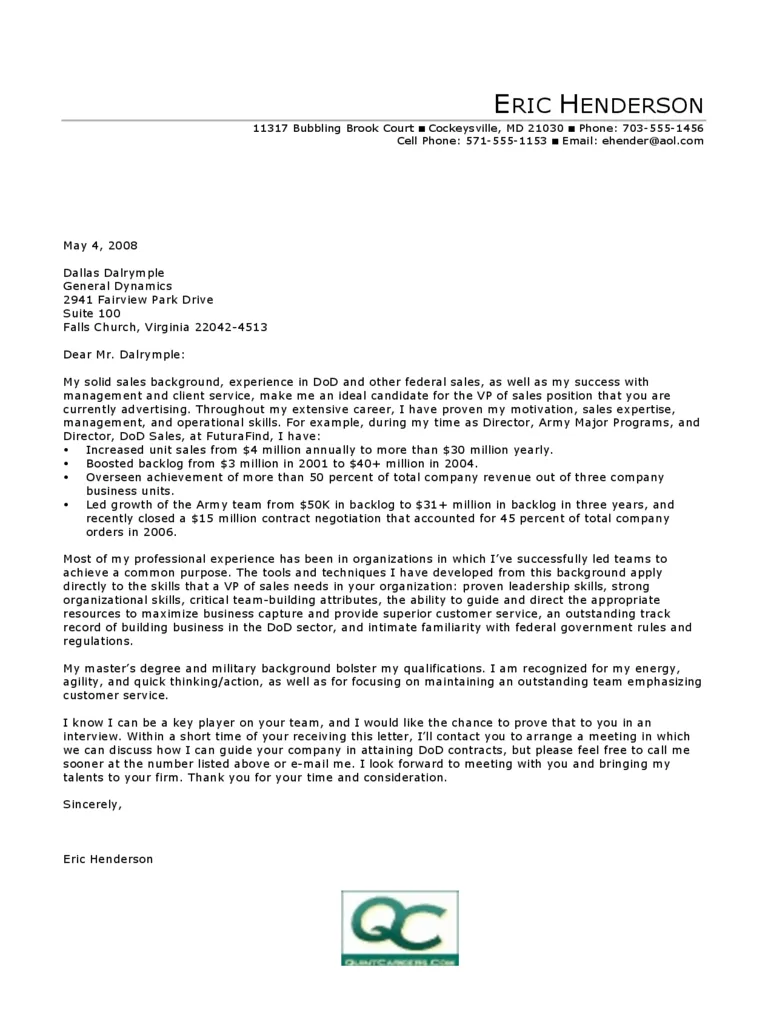
Excellent communication skills are critical in sales, and your cover letter is an ideal platform to demonstrate yours. Highlight your ability to clearly and persuasively convey information, both written and verbal. Provide examples of how you’ve effectively communicated with clients, colleagues, and supervisors to build relationships, close deals, and resolve conflicts. You can describe situations where you adapted your communication style to suit different audiences or used your skills to influence decision-making. Your cover letter should showcase your writing skills. Ensure that the language is clear, concise, and error-free, with a professional tone. Consider how you communicate complex ideas. By demonstrating your strong communication skills, you will assure the hiring manager that you can interact effectively with clients, explain product benefits, and build rapport, all of which are essential elements of sales success. Ensure your cover letter is well-structured and easy to read, as this enhances its clarity and impact.
Persuasion and Negotiation
Sales professionals must be skilled in persuasion and negotiation. In your cover letter, demonstrate these abilities with concrete examples. Describe situations where you successfully persuaded a prospect to make a purchase or negotiated a favorable deal. Quantify your achievements by stating how your negotiation skills resulted in increased revenue or cost savings. Highlight your ability to understand customer needs, address objections, and find mutually beneficial solutions. Mention how you’ve built rapport and trust with clients. Showcasing your persuasion skills might involve discussing your ability to adapt your approach to various customer personalities or describe a situation where you expertly navigated a difficult negotiation, leading to a positive outcome. The goal is to show you can advocate for your company’s interests while also satisfying customer requirements. The better you are at these, the better you will be at selling the product.
Using the Right Tone and Language
The tone and language of your sales cover letter should reflect professionalism and enthusiasm. Use active verbs to describe your accomplishments and skills. Maintain a confident but not arrogant tone. Avoid overly casual language, slang, or jargon that may not be universally understood. Tailor your language to match the company culture. Research the company’s website, social media, and any available press releases to get an idea of its voice and style. Your cover letter should convey your personality and passion for sales. Show your excitement for the opportunity, but do so in a way that demonstrates your professionalism and respect for the organization. The right tone and language can significantly influence the hiring manager’s perception of you. It makes your cover letter more memorable and ensures that you make a favorable impression.
Avoiding Common Sales Cover Letter Mistakes
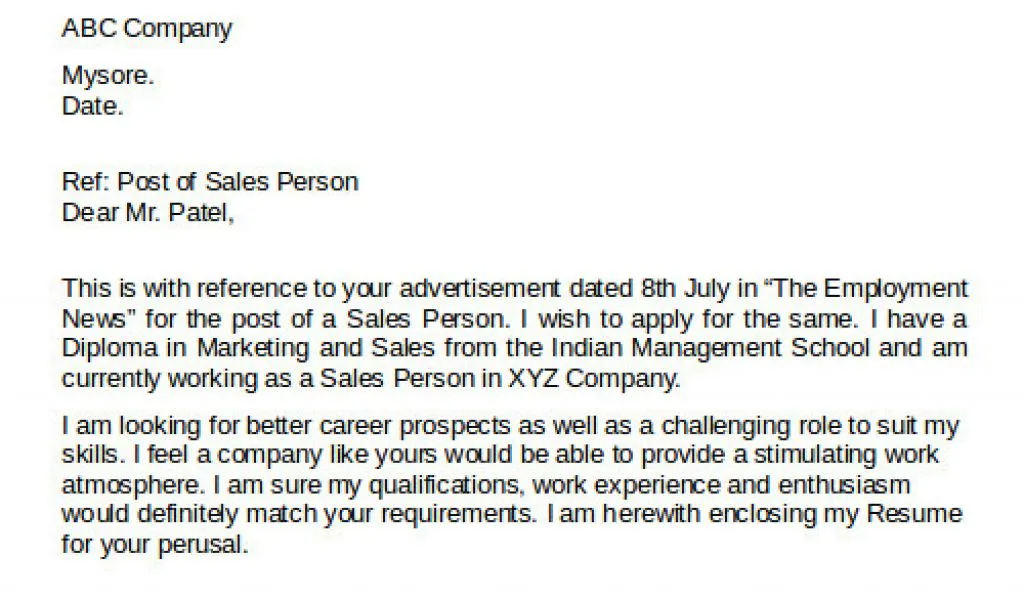
Avoiding common mistakes in your sales cover letter is essential to ensure that it effectively represents you and your qualifications. Errors can easily lead to rejection. Attention to detail is important, and this must reflect that. This section will help you identify the most common pitfalls and provide guidance on how to avoid them, thereby enhancing your chances of making a positive impression.
Generic Templates and Clichés
Using generic templates and clichés is a surefire way to make your sales cover letter forgettable. Generic templates often lack personality and fail to demonstrate your unique qualifications. Avoid phrases that can be found in many cover letters. These generic phrases diminish your individuality and suggest a lack of effort. Instead, personalize your cover letter by crafting it specifically for the job and the company. Tailor your content to highlight your relevant experience and skills, focusing on your achievements. Use your own voice and style. If you choose to use a template, adapt it to reflect your qualifications and tailor it to the specific role. The goal is to show the hiring manager that you’ve done your research and are genuinely interested in the opportunity, not just sending out a mass application.
Focusing on Yourself Too Much
A common mistake is focusing too much on what you want rather than on how you can contribute to the company’s success. Your cover letter should showcase your skills, experience, and accomplishments, but always frame them in the context of how they benefit the employer. Instead of simply stating what you are looking for in a job, explain how your skills and experience align with the company’s needs and objectives. Show the hiring manager how you can add value to their organization. Address their pain points and demonstrate how you can help them achieve their goals. The best cover letters are about the employer, not just the applicant. By focusing on how you can meet the employer’s needs, you will make a strong case for why you are the best candidate for the job.
Failing to Research the Company
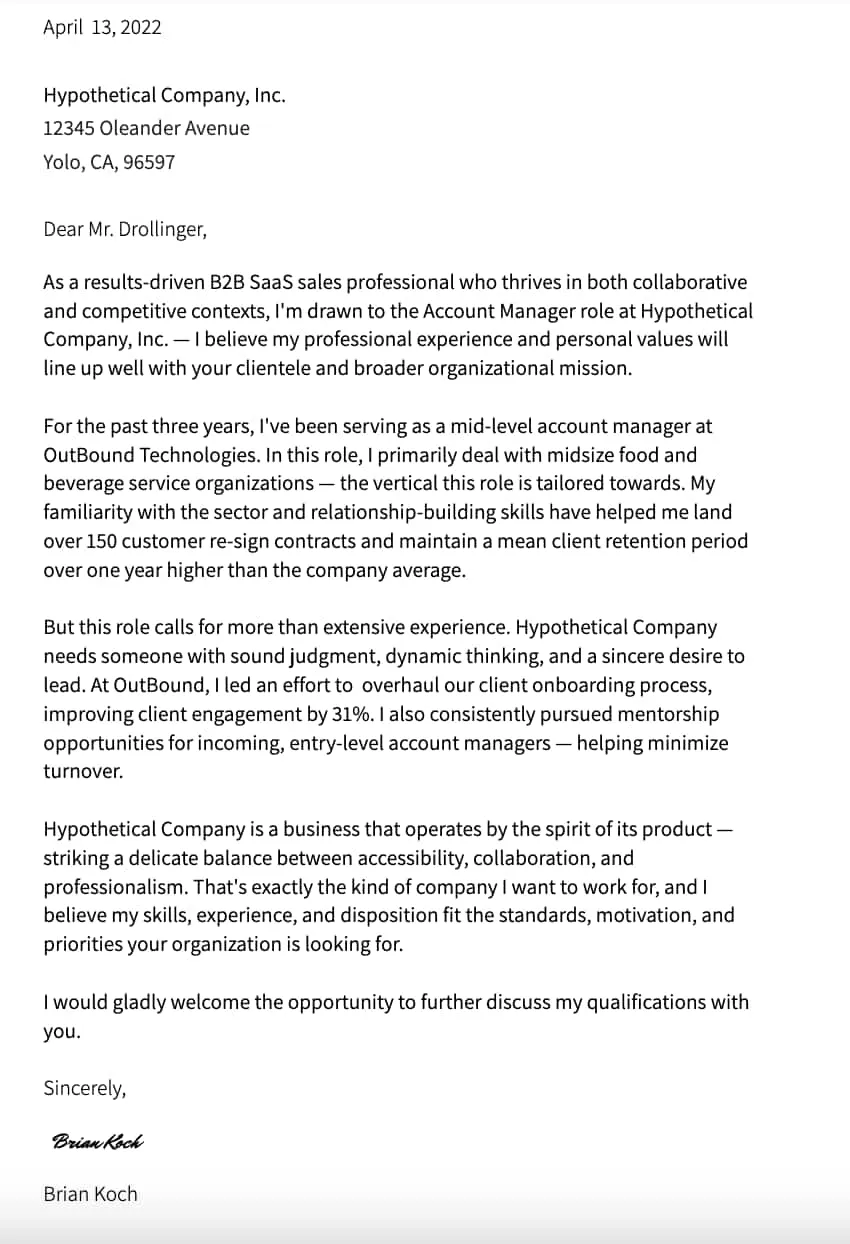
Failure to research the company is a serious mistake that signals a lack of interest and preparation. Before you write your cover letter, take the time to learn about the company’s mission, values, products or services, and recent developments. Research the specific role and the challenges the company faces. Tailor your cover letter to reflect your understanding of the company and how you can contribute to its success. Reference specific company initiatives, products, or clients. Demonstrate your knowledge of the industry and the company’s position within it. Make sure your cover letter highlights how your skills and experience align with the company’s needs. A lack of research will make your application generic and show that you haven’t put in the effort needed to understand the company and the role. By showing that you’ve done your homework, you’ll impress the hiring manager and show that you are genuinely interested in the opportunity.
Formatting Your Cover Letter for Impact
The formatting of your sales cover letter plays a crucial role in making it easy to read and visually appealing. A well-formatted cover letter demonstrates your attention to detail and makes a positive impression on the hiring manager. Keep your letter concise, using clear headings, bullet points, and short paragraphs. This makes your cover letter easier to scan and digest, allowing the hiring manager to quickly understand your key qualifications and accomplishments. Ensure your formatting aligns with the job’s expectations. If the job requires a particular file format, ensure your cover letter adheres to it. Proper formatting shows professionalism and helps you stand out.
Choosing the Right Font and Layout
Selecting the right font and layout is a simple but essential step. Choose a professional and easy-to-read font, such as Times New Roman, Arial, or Calibri, with a font size between 10 and 12 points. Ensure consistent formatting throughout the document, using clear headings and subheadings to structure your content. Maintain consistent margins and spacing to create a clean, uncluttered look. Avoid using excessive colors or graphics that can distract from the content. Your goal is to create a professional and visually appealing document that highlights your qualifications. Make sure your name and contact information are clearly displayed at the top of the letter, and include the date and the hiring manager’s contact information. Proofread your cover letter carefully to eliminate any spelling or grammatical errors. A well-formatted cover letter will make it easier for the hiring manager to focus on your qualifications and can significantly boost your chances of getting an interview. Also, make sure you are using a simple layout.
Keeping it Concise and Readable
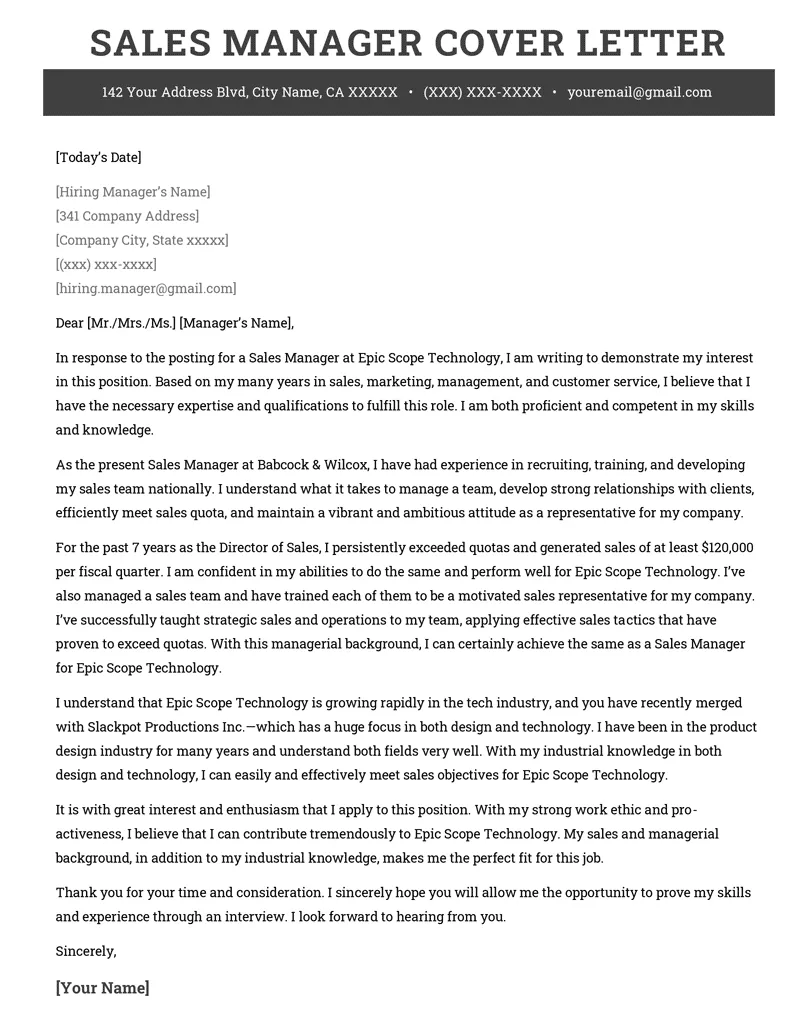
In today’s fast-paced environment, keeping your sales cover letter concise and readable is essential. Hiring managers often have to review numerous applications, so your goal is to make it easy for them to quickly grasp your key qualifications and accomplishments. Aim for one page. Use short paragraphs and clear, concise language. Avoid lengthy sentences and complex phrasing. Break up large blocks of text with bullet points and headings to make your letter scannable. Focus on the most important information. Prioritize your achievements and skills that are most relevant to the job requirements. Eliminate any unnecessary details or information that does not directly contribute to making a strong case for your candidacy. Make every word count. Edit your cover letter carefully to remove any redundancies or filler words. A concise and readable cover letter ensures that your message is clear and compelling, leaving a positive and lasting impression on the hiring manager.
Call to Action
Your cover letter should conclude with a clear call to action, prompting the hiring manager to take the next step. This is your opportunity to reiterate your interest in the position and request an interview. Make it easy for them to contact you. A strong call to action ensures that you are proactive and leaves the hiring manager with a clear understanding of how to proceed. This could be as simple as expressing your enthusiasm for the opportunity and your availability for an interview or meeting to discuss your qualifications. Make your call to action specific and direct, emphasizing your eagerness to learn more about the role and the company.
Requesting an Interview
Your cover letter’s call to action should explicitly request an interview. This leaves no room for doubt regarding your interest in the position. Make it clear that you are available and eager to discuss your qualifications in more detail. State your availability, whether it’s for a phone call, virtual meeting, or in-person interview. Include a specific statement like, ‘I am very interested in the Sales Representative position and would welcome the opportunity to discuss my qualifications in an interview.’ Be sure to reiterate your interest in the role. You can reiterate your enthusiasm and desire to learn more about the company and the opportunity. This is a good place to reaffirm your understanding of the company’s needs and how your skills and experience can benefit them. A clear, direct request for an interview is a crucial part of securing a job offer.
Thanking the Hiring Manager
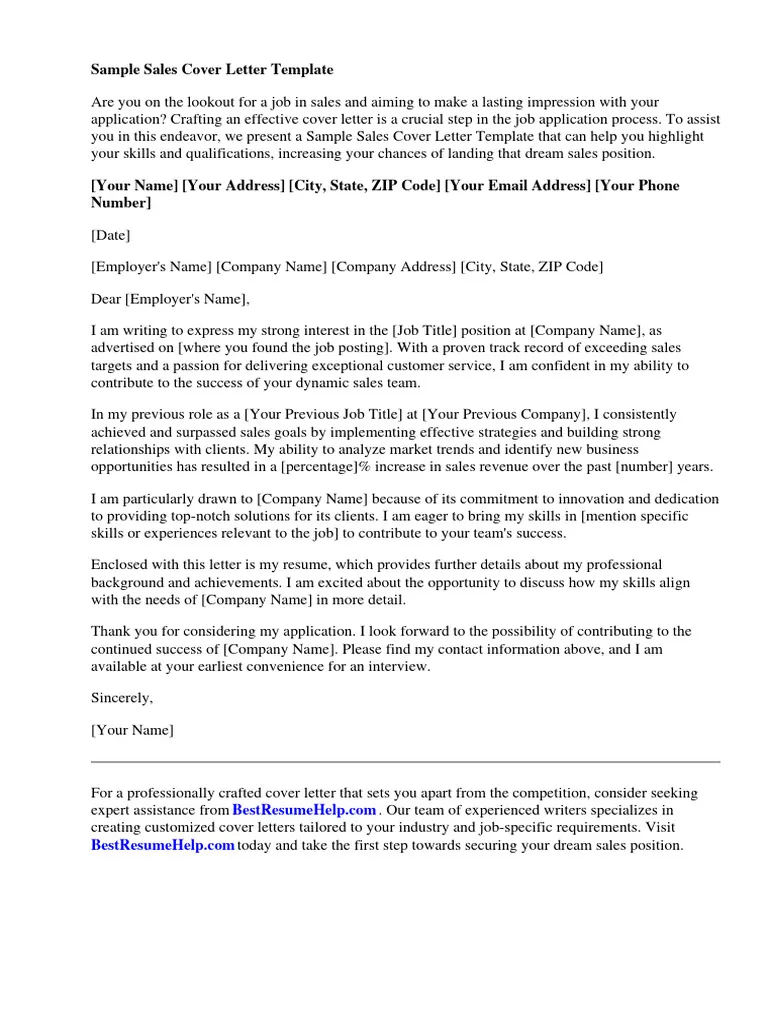
Concluding your cover letter by thanking the hiring manager for their time and consideration is a gesture of professionalism and courtesy. Express your gratitude for their attention. It also gives you a chance to end on a positive note. A simple ‘Thank you for your time and consideration’ is a good starting point. If you know the hiring manager’s name, use it to personalize your thank you. Reiterate your interest in the role and your eagerness to hear from them. Sign off with a professional closing, such as ‘Sincerely,’ or ‘Best regards,’ followed by your name and contact information. Showing gratitude and professionalism in your thank you message will boost your cover letter.
